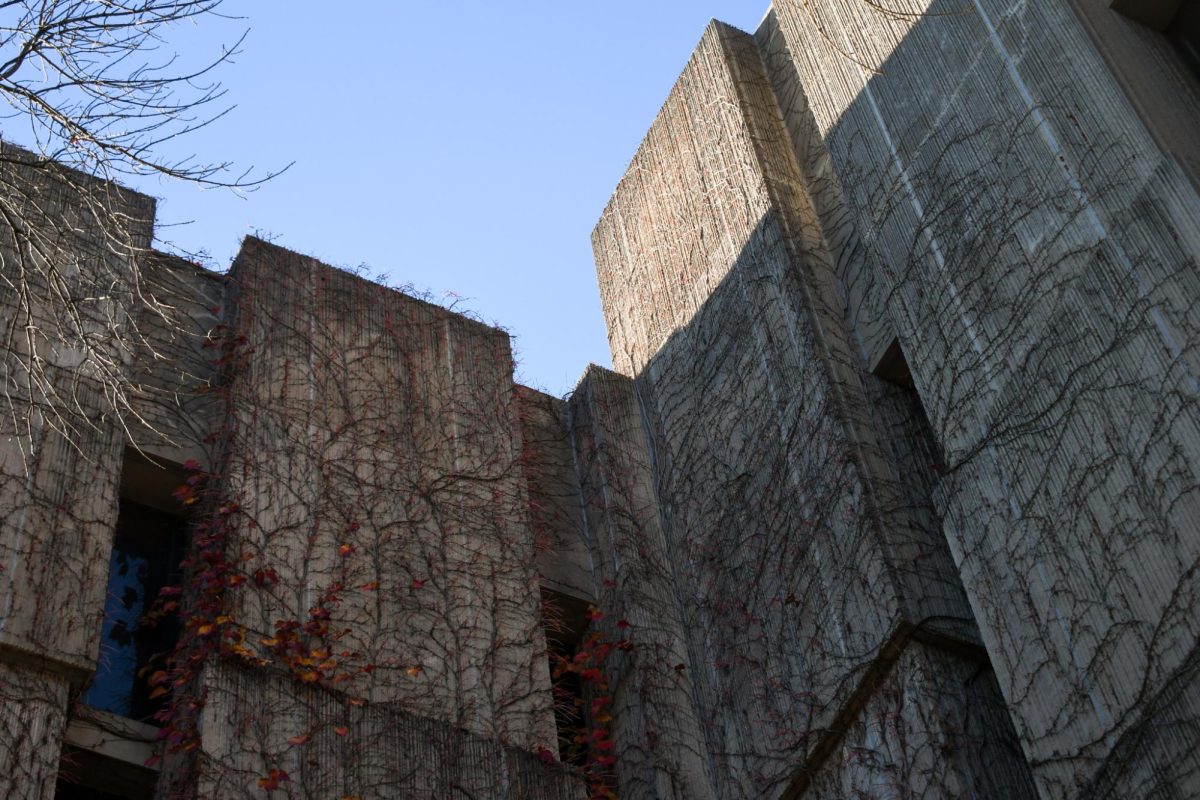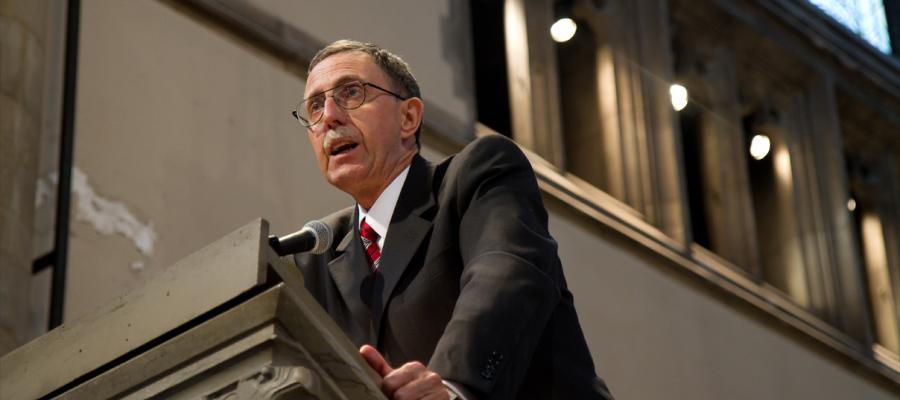As I read Lena Breda’s op-ed (“I’m #WithHim”, 11/29) I was hit with two feelings. The first was plain shock at her conclusion. But it was the second, countervailing feeling that impelled me to respond: creeping familiarity, the feeling that her argument was so strikingly pernicious in part because it had been culled from ideas that we all recognize and invoke—about democracy, about “civility,” about political participation—but that Breda had misinterpreted to disastrous effect.
Breda believes that we need to accept Trump as our rightful leader, because he “is what the American people decided according to the long-established laws of our country,” which makes him a legitimate president. This idea draws from a long tradition of democratic thought that has, I suspect, either been flattened entirely into meaningless clichés or has been malformed beyond usefulness. What Breda says is fine if you assume that a single election’s results represent the “decision” of a group as large and heterogeneous as America’s citizens. I, and several political theorists, don’t agree. And does being “long-established” automatically grant credence to a political institution? The Electoral College is long-established but its very purpose is to contradict the will of American people when necessary. So which is it: the people’s decision or the long-established laws? Breda’s ideas fail to cohere because they are grabbed haphazardly from among old and imperfect systems of thought.
Additionally, Breda argues, disavowing Trump corrodes what little cohesion the government has and may throw one of the world’s largest and most powerful countries into anarchy. It also “licenses others to reject the outcome of other elections,” which could set a dangerous precedent for democracy. It is in this worry about the effects of “civil division and political unrest” that Breda finally severs herself from reality in favor of a charming but meaningless code of values. I sympathize with her fear of widespread chaos in the United States. As a Colombian immigrant, I know from my home country’s decade-long civil war that rejecting government legitimacy can portend danger. I also fall in line with the camp that believes one of democracy’s most salutary characteristics is a bloodless exchange of power.
However, Breda’s viewpoint has no space for “civil division and political unrest” as a positive force. She cites, by way of example, South Africa. I wonder: Is she aware that one of the last times political violence and civil unrest ran rampant over the face of South Africa it achieved the end of apartheid? The opposition leaders stubbornly refused to grant the government the legitimacy to strip the citizenship of non-whites, just as many Americans will, if necessary, refuse to grant President-elect Trump the legitimacy to do so for Muslims and other targeted minority groups.
I was reminded of Martin Luther King Jr.’s “Letter from a Birmingham Jail,” from which I draw a great deal of the animus behind my response. He writes of his disappointment in the “white moderate” who counsels against confrontation and the aggravation of tensions. “I have almost reached the regrettable conclusion,” he writes, “that the Negro’s great stumbling block in his stride toward freedom is…the white moderate, who is more devoted to ‘order’ than to justice; who prefers a negative peace which is the absence of tension to a positive peace which is the presence of justice.” This is exactly the viewpoint Breda expresses—one that would rather see the deportation of Muslims than the active resistance of Muslims to their deportation, or the peaceful abolition of the right to abortion than an armed struggle in the streets against it.
Breda’s viewpoint is so bloodless that it is incapable of conceptualizing moral dissent against the government, despite the fact that America’s independence was ostensibly founded upon it. She fails to see beyond the horizons of a fairly equitable society where issues are handled through a peaceful democratic process; beyond that horizon is a landscape where the legitimacy in operation is moral legitimacy. This is why she believes that “[rejecting] this election licenses others to reject the outcome of other elections.” Our watered-down understanding of governmental legitimacy can’t distinguish between the dissent of a white nationalist and the dissent of a leftist; unjust dissent and just dissent; and finally, immorality and morality. It bears repeating: some things are legitimate just because they are right, and some things are illegitimate just because they are wrong.
As King wrote, “One has not only a legal but a moral responsibility to obey just laws. Conversely, one has a moral responsibility to disobey unjust laws. I would agree with St. Augustine that ‘an unjust law is no law at all.’”
Nowhere is this obvious truth so glaringly ignored as when Breda addresses the threat that President-elect Trump poses. “To those who say Trump is a tyrant who will have horrendous effects on our government, I concede,” Breda writes. “He is a dangerous, narcissistic despot, but he was elected rightfully by our country, so therefore we must respect the results.” She concedes that Trump is a tyrant and despot, which effectively means he is the exact opposite of a democracy’s leader. As a tyrant and despot, he destroys the very conditions of democracy itself. It is not only our right to oppose him, but our obligation. Breda’s viewpoint, which I wish to stress is one many thoughtful and decent people accept uncritically, would rather have us keep to all of democracy’s rules and fall under a dictatorship than dare to uphold democracy in an undemocratic environment.
American democracy is indeed experiencing a “make-or-break” moment. Our choice is either to fight for our rights as humans or to stand impassively as we allow others to make our history for us.
—Juan Caicedo, second-year in the College







